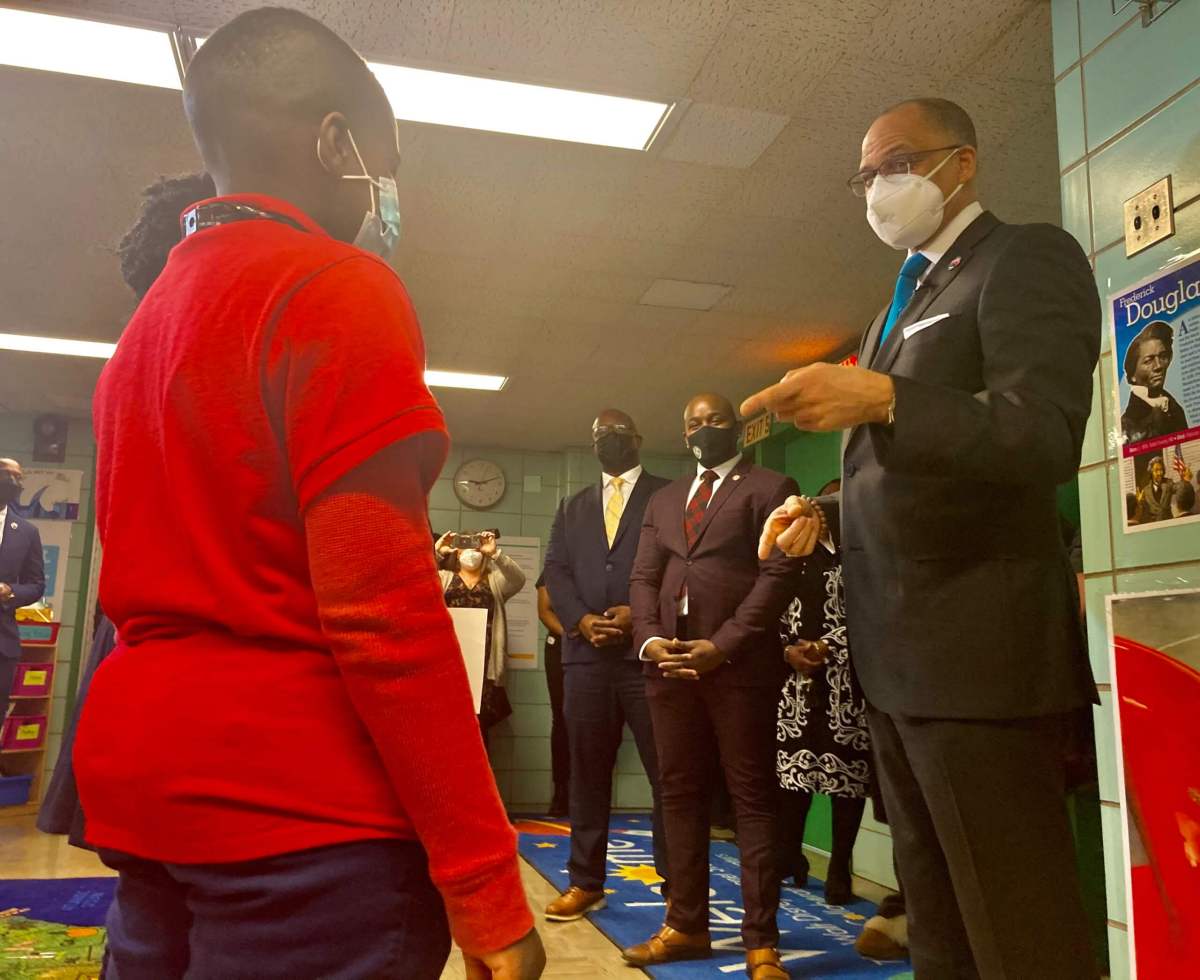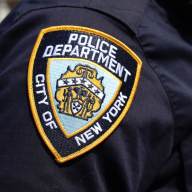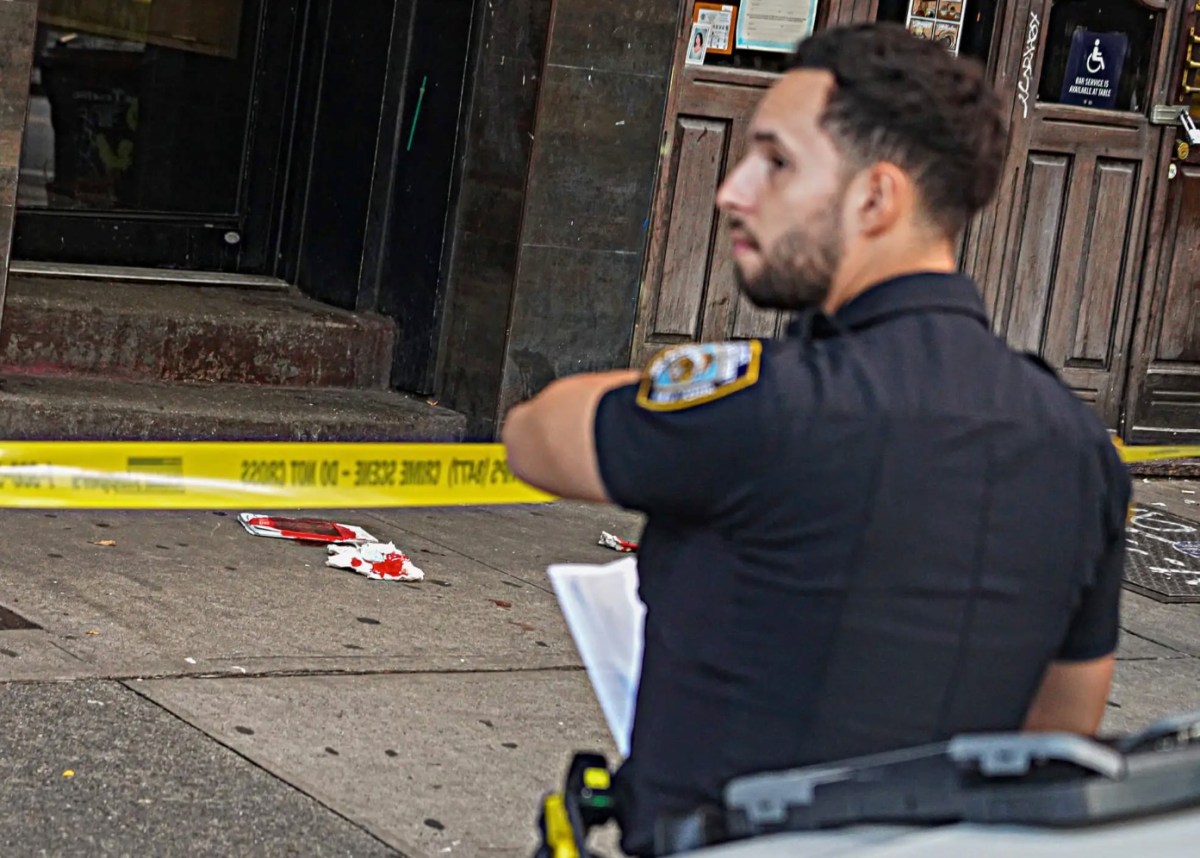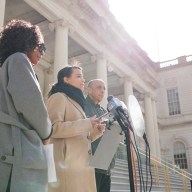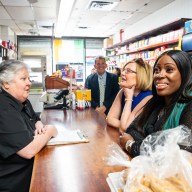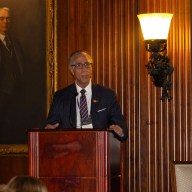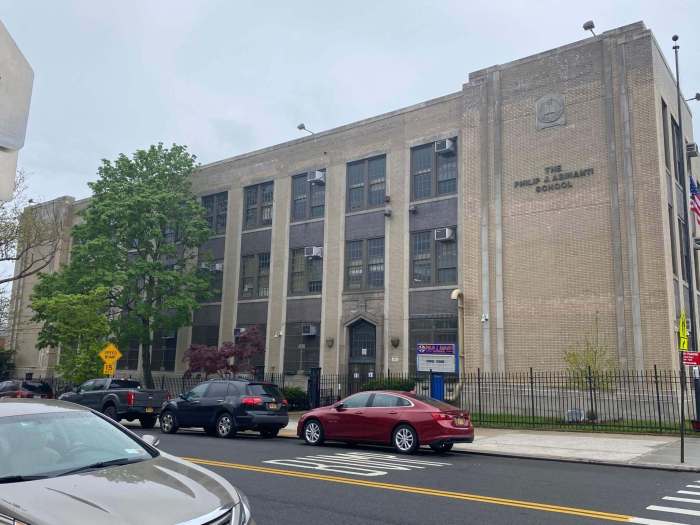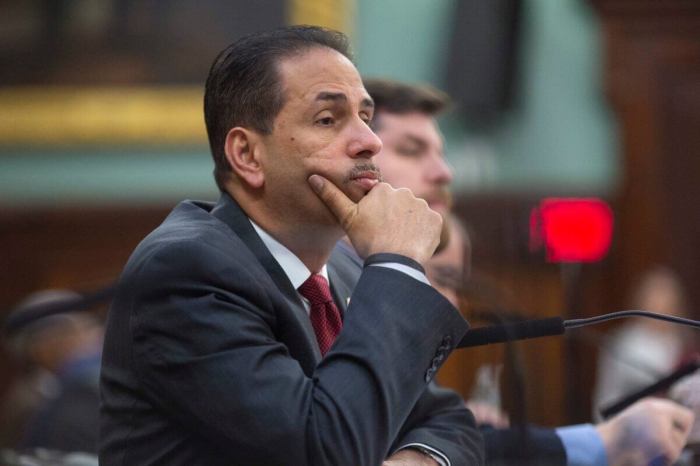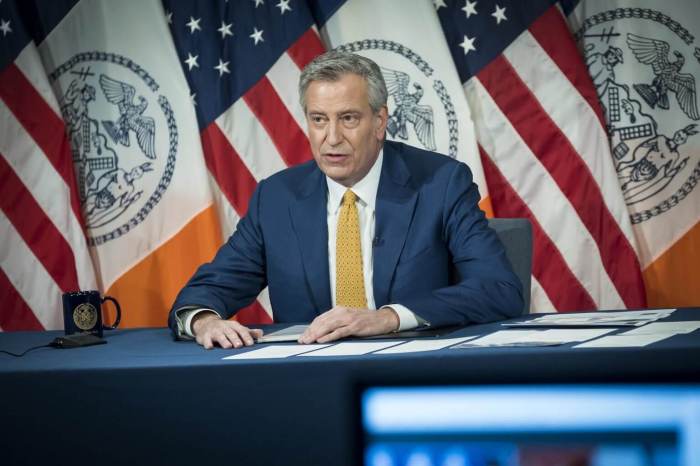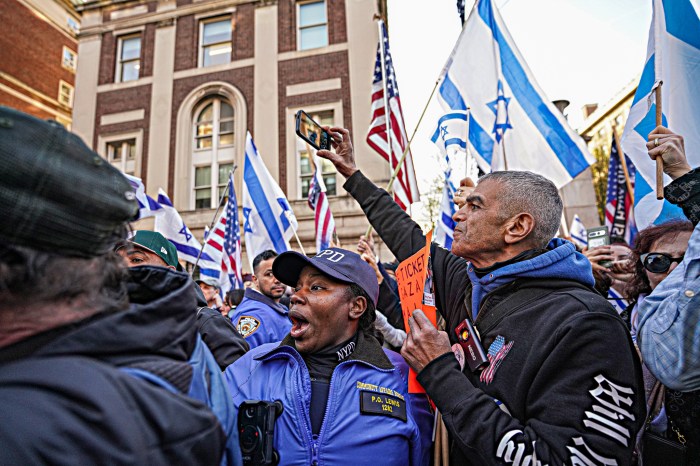NYC Schools Chancellor David Banks learned an important Black history lesson in his visit through the creatively-adorned walls of the PS 160 Walt Disney Magnet STEAM School, the first of a slew of NYC public school visits the Adams-appointed chancellor made on Wednesday.
During the tour of the Co-op City elementary school, Banks learned that Alfred L. Cralle — a Black man — invented the ice cream scoop in 1897. For Banks, the presence of Black history in NYC classrooms like PS 160’s, at a time when 37 states are considering limits to the teaching of sexism, racism and inequality, is paramount to American education.
“There are so many different parts of (Black) history that many of us still don’t know, so we should all be learning and growing each and every day,” said Banks to reporters following his tour of the elementary school on Wednesday morning. “And in a school like this, they do a phenomenal job that kids are learning about their history … and it’s critically important across America that we continue doing that for all kids.”
Much of the pushback against Black History Month and, more specifically, critical race theory — a near 40-year-old academic concept that race is a social construct, and that racism is not merely the product of individual bias or prejudice — has been a result of deepening divides among political, social and cultural lines, analysts cite.
“So many of these laws say that, you know, any references that could make students feel uncomfortable, especially white students, feel uncomfortable in some way about racism or about the history they’re being taught, that parents can complain about that,” said Nadra Nattle, an education reporter for The 19th, in a PBS interview earlier this month. “And that’s what we’re seeing, parents saying they’re uncomfortable with references to racism.”
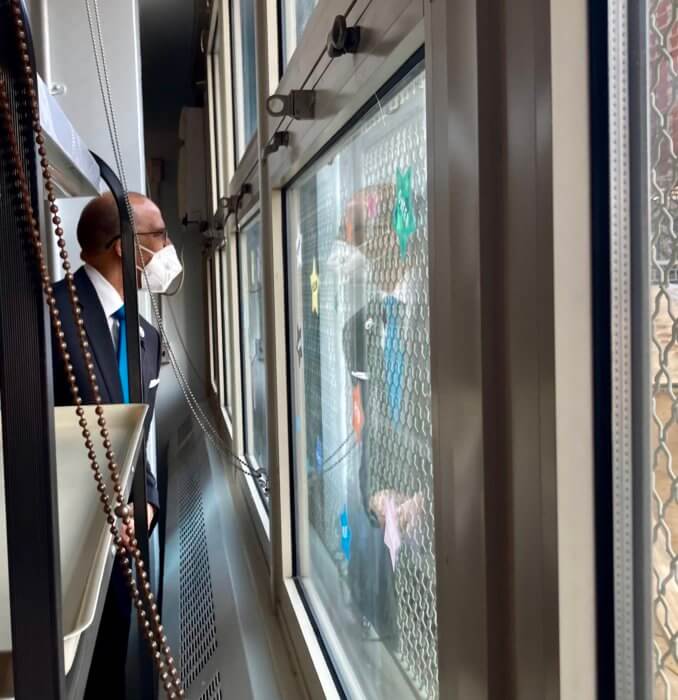
But in the halls of PS 160, children across a spectrum of identities are engaging meaningfully with Black history curriculum, whether it’s a second-grade class learning about African American art or the various Black figures written about by students that decorate each tile space of the school.
Principal Lori Baker said it’s a part of the school’s 365-day approach to not only Black history but well-rounded curriculum that challenges children age 5-11.
In addition to learning about the past, the Black and brown students at PS 160 are also getting opportunities to excel in avenues previously shutout to minority students, such as the Science, Technology, Engineering, Arts and Mathematics (STEAM) field and student government.
PS 160’s Magnet STEAM program allows Walt Disney students to work in rotating groups where they exhibit their block-building, problem solving and applied scientific and mathematical development through the use of Lego towers, paper airplane throws and teamwork.
The need for Black representation in STEM is an evergreen issue in higher academic circles, as Black participation in the field has steadily waned over the past decade.
The proportion of Bachelor of Science degrees awarded to Black graduates remained flat at about 9% from 2001 to 2016, according to the most recent available figures from the National Science Foundation; but in the field of engineering, it declined from 5% to 4%; and in math, it dropped from 7% to 4% over that same period.
Black students earned 7% of STEM bachelor’s degrees, according to the latest Pew Research Center report in 2018.
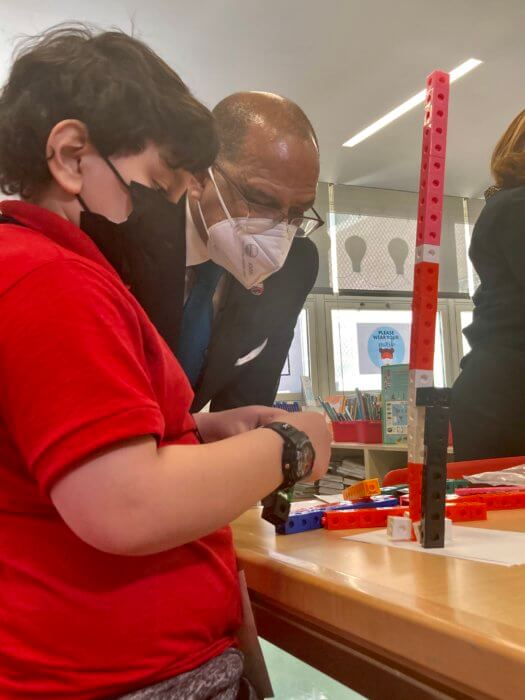
“If you’re Black, you may have the drive, you may have the passion, but you also have deficiencies that were born of differential opportunities,” says Shirley Malcom, director of STEM Equity Achievement Change, an initiative of the American Association for the Advancement of Science in Washington, D.C., that supports making institutions diverse and inclusive.
One PS 160 teacher told the Times that PS 160 Walt Disney’s STEAM program allows students to see themselves as future mathematicians, scientists and any STEAM career they desire.
The school is also building the future leaders of today, as evidenced by their welcoming committee of red-clad student government officers who greeted Banks, U.S. Rep Jamaal Bowman and NYC Councilman Kevin Riley to their school on Wednesday.
“The fact that they have a student government in an elementary school … we should have student government in every school in the city,” said Banks. “They have a very robust student government that I think is a big deal, and these kids had to run for office and campaign. That’s important because if we want young people to grow up into adults and take their rightful place in a democratic society, you have to practice that in the K-12 space.”
Around 10 a.m. Banks left PS 160, impressed by the school — from its uniquely designed counseling space to its project-based learning and stress on community — he believes it could be a model for other schools in the city Department of Education’s portfolio.
“School is the place where we have to teach and help young people learn how to grow and how to be healthy,” said the chancellor. “And it’s on full display at this school and it’s the great leadership and culture that they’ve developed here that should be seen by every school in New York City. ”
Reach Robbie Sequeira at rsequeira@schnepsmedia.com or (718) 260-4599. For more coverage, follow us on Twitter, Facebook and Instagram @bronxtimes.

